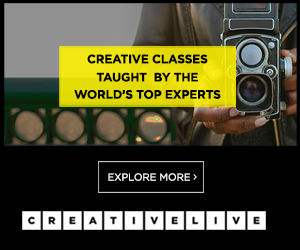Some thoughts on preparing for the Novel Coronavirus COVID-19
With the alarming spread of COVID-19 on everyone’s minds, it can be easy to feel helpless and dismal about the future. Life’s about accepting what we can’t control, and managing what we can. Here are a few suggestions for you to take action now, and not wait for a pandemic or otherwise to be declared.
WASH YOUR HANDS PROPERLY. WITH SOAP.
We’ve had many people asking; “should I wear a mask? Should I avoid certain areas of town?” All the masks in the world would be useless to prevent infection transmission if we didn’t have proper hand washing technique, that anyone can do, as endorsed by the World Health Organisation (WHO).
Sing “Happy Birthday To You” twice while washing. That’s the recommendation. (Aloud, if you wish!)
SOAP is key. And frequently. If you cough. If you sneeze from hay fever. Before and after you eat.
If no soap, use alcohol-based hand rub.
This goes for the flu as well. Influenza is not just spread by airway droplets; it is actually spread through contact transmission, ie. hands and other surface contact, just like gastroenteritis. Coronavirus (which is a name for a group of respiratory viruses, hence COVID-19 for the name of this particularly virulent subtype) is also spread in this way, just like the common cold. Hence, HANDWASHING WITH SOAP is important.
I can’t emphasise it enough. Handwashing saves lives. And it’s annoying when people cough and sneeze without covering their mouths and noses in public (an accident is an accident, but if you’re being a tool, that’s just rude). And in Australia, we’re not at the stage right now where our Government is saying we have to wear masks as a precaution. And even if we were, we’d still say- WASH YOUR HANDS WITH SOAP.
2. Minimise hand-to-hand transmission
So yes, avoiding handshakes is reasonable.
3. Pay attention to the latest health updates from your local Government health authority.
Your Federal or State Government; or the equivalent authority wherever you live, will be able to give you up to date advice in your area; on whether it’s safe to go out; to go to work/school; to attend particular events. Listen to the real news, not fake.
Speaking of real news; drive-thru coronavirus testing has apparently taken off in Daegu, South Korea. Seems like a great way to reduce exposure risks to the community- and to healthcare workers (and their families), too.
4. Prepare for Online Work/Study/Telehealth
One of the only business models that would actually benefit from COVID-19 is telemedicine.
The RACGP is calling on the Federal Government to allow a short-term Medicare rebate for Telehealth services to help enable consultations while minimising risk of infection transmission. In the US, where Telehealth is more mature, telemedicine providers are ramping up their capabilities and patients are being warned to expect more consultations online.
It won’t just be healthcare. Schools and universities are already in the midst of online classes for those stranded by travel bans and restrictions. EY and other multinational firms have cancelled some business travel and moved to online conferencing to reduce risks to their employees. We foresee professional development conferences and workshops increasingly being moved online across all industries.
So, if you have a remote working/studying option, prepare early for this, as a snap decision could be made by your Government/institution in a day. Or if you’re self-employed, now would be a great time to see what services you could move online.
5. Pay attention to your travel insurance.
If you’re planning to travel somewhere, check what your travel insurance’s Product Disclosure Statement covers.
6. Be kind and compassionate
There’s absolutely no excuse for racism. Ever.
It is NOT the fault of someone’s ethnicity or appearance that this virus has appeared. It’s APPALLING how ignorant people can be, and how widespread rudeness is.
Health systems and local industries beyond health are already overstretched. By putting your prejudices in front and pointing fingers at people of particular appearance (and we’ve been victims of this!), you’re simply displaying how ignorant you are, and wasting time and energy alienating the very people who are trying to help you, or who are your neighbours in your local communities.
No one wanted coronavirus to happen. It’ll be easier to get through together without hatred and fear.




